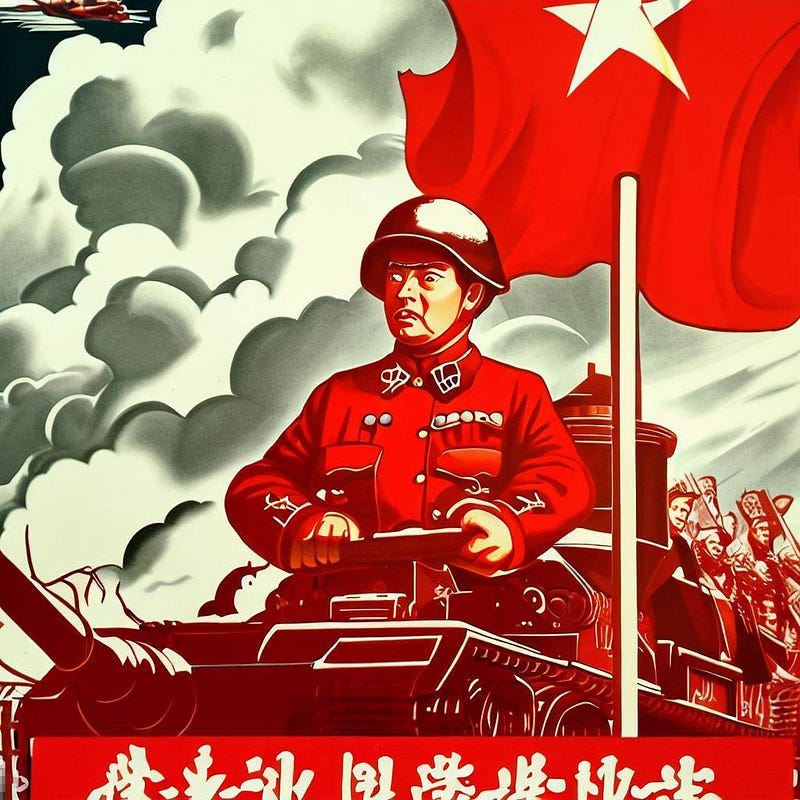A Masterpiece of Propaganda or Wisdom of the Ages?
The Tao Te Ching's Original Purpose
The Tao Te Ching's Original Purpose
Two Parts
It’s funny how people can read the exact text and come away with a completely different meaning. Now, it’s typical to cherry-pick wisdom out of any text you disagree with, especially in religious or philosophical works. But to deny, or be ignorant of, its original purpose for creation would be unwise and lead to inaccurate interpretations.
Go to any bookstore, and you’ll find Tao Te Ching sold as a book of 81 chapters. However, the book actually has two parts: Tao Ching (道經; chapters 1–37) and Te Ching (德經; chapters 38–81). While Tao can be translated as ‘the way,’ Te translates to ‘virtue,’ but not the same kind of virtue as you and I believe. This virtue is absent of morality, while virtue and morality are more intertwined in a Western school of thought.
Read a copy of the text that doesn’t distinguish between the two parts, and you’ll notice that chapter 39 begins to speak specifically about ruling and leadership. This isn’t coincidental; Lao-tzu, the legendary author, didn’t just run out of ideas about humanity.
What Happened in China?
Before we go any further, we need to understand something about ancient China 2,500 years ago. China wasn’t a unified country and instead was a series of tribes and kingdoms all fighting for supremacy. Constant war, famine, and death drove emperors and rulers to seek wisdom from advisors and wise men with payment as a reward. Now that money was involved in knowledge, scholars and experts would travel from land to land, offering how they saw best to steer the kingdom.
Lao-tzu, having grown tired of his time among people, saw a different way of living — a system of balance with nature and the people around him.
Therefore, it should not be surprising that the back half of Tao Te Ching turns its attention to rulers.
Today, we like to read Lao-tzu’s words and poems and think about peaceful streams, butterflies, and inner strength, but make no mistake, upon its creation, the Tao Te Ching was a political commentary on how governments were abusing their land and their people. Like today, corruption, lies, and misinformation were rampant, and when allowed to help a soldier on his way out of town forever, he shared his wisdom. Read Chapter 65 below:
In ancient times,
Those who followed the way
Did not try to give people knowledge thereof,
But kept them ignorant.
People are difficult to rule
Because of their knowledge.
To rule by knowledge ravages the country.
To rule not by knowledge blesses the country.
To understand these two is to have precept.
To always have precept is called profound virtue.
Profound virtue is indeed deep and wide.
It leads all things back to the great order.
In this example, the objective is clearly shown- to rule. Notice the mention of virtue in this chapter as well. Remember that the second half of the text is called Te (virtue) Ching.
Conclusion
So, yes, you can gain infinite wisdom from Taoist texts; in some way, we are all leaders. So either your family, group of friends, or colleagues, each one of us is put into a “ruler” like position more than once a day.
What is the Tao Te Ching? Is it propaganda or wisdom for the ages? It’s both.
As I mentioned initially, knowing why a text was written doesn’t take away from its powerful impact on history, myself, or any reader. However, it can grant numerous insights into the author’s mind.
If you can understand the author better, you can appreciate his writing, which, in this case, leads to being closer to the Tao.





